Newsworthy: AutoMobility LA, the special media preview days at the LA Auto Show, will see crossovers and SUVs take the stage, including a long-awaited Jeep Wrangler revision. Speaker panels  and displays will emphasize the future of mobility, including autonomous, electrified vehicles. BMW will be showing the i8 Roadster plug-in hybrid two-seater that will go on sale in early 2018. It had been initially shown in 2014, and this one will have 358 horsepower and 330 miles of range with 14 in EV only. Porsche will show four models including the Panamera Turbo S E-Hybrid Sport Turismo that gets 680 horsepower. The 2017 Top Ten Automotive Startups Competition startups range from enterprise carpooling and in-air hand controlled devices, to electric motorcycles and analytics software for commercial vehicles. The “Smarter LA 2060” challenge will show what the city would be like of a major international sporting event such as the Olympics were to be held in the city in 2060………. The Tesla Semi will start at an “expected base price” of $150,000 for a truck with a 300-mile range per battery charge, the company announced. That price will go up to $180,000 for a 500-mile range truck. The first 1,000 Tesla Semis as “Founder’s Series” models and priced them at $200,000 (but fleet orders probably won’t be included)………….. BMW AG said it’s talking to suppliers of cobalt and other battery materials as fears intensify over supply running short, pushing already inflated prices higher. Sourcing of cobalt and other materials is “the most important” question BMW has to address before it decides whether to produce its own battery cells, the company said.
and displays will emphasize the future of mobility, including autonomous, electrified vehicles. BMW will be showing the i8 Roadster plug-in hybrid two-seater that will go on sale in early 2018. It had been initially shown in 2014, and this one will have 358 horsepower and 330 miles of range with 14 in EV only. Porsche will show four models including the Panamera Turbo S E-Hybrid Sport Turismo that gets 680 horsepower. The 2017 Top Ten Automotive Startups Competition startups range from enterprise carpooling and in-air hand controlled devices, to electric motorcycles and analytics software for commercial vehicles. The “Smarter LA 2060” challenge will show what the city would be like of a major international sporting event such as the Olympics were to be held in the city in 2060………. The Tesla Semi will start at an “expected base price” of $150,000 for a truck with a 300-mile range per battery charge, the company announced. That price will go up to $180,000 for a 500-mile range truck. The first 1,000 Tesla Semis as “Founder’s Series” models and priced them at $200,000 (but fleet orders probably won’t be included)………….. BMW AG said it’s talking to suppliers of cobalt and other battery materials as fears intensify over supply running short, pushing already inflated prices higher. Sourcing of cobalt and other materials is “the most important” question BMW has to address before it decides whether to produce its own battery cells, the company said.
Electrified shared rides: Friday saw Indian automaker Mahindra and Mahindra and Uber 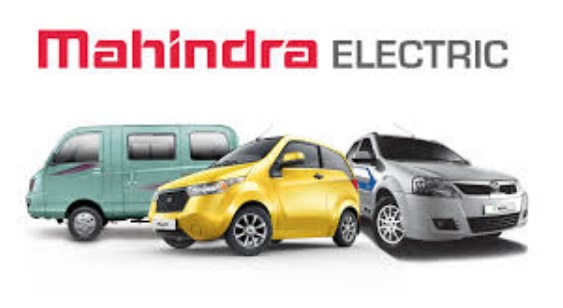 announcing a pilot project to test out electric vehicles on the Uber platform in India. Hundreds of EVs will roll out in Delhi and Hyderabad starting in March, and other Indian cities will be under consideration. This announcement came days after Uber acknowledged that it had paid off hackers $100,000 over a year ago to destroy stolen data on more than 57 million customers and drivers. That’s brought up a few class-action lawsuits and a federal probe. Mahindra will be adding two new EVs to its fleet, with one being jointly developed with its South Korean unit, Ssangyong Motor Co, India’s national government continues to push forward on the plan for clean vehicles and energy, with some of it being deployed through public transportation. Uber and Mahindra will work with public agencies and private companies to establish charging stations, starting in Hyderabad.
announcing a pilot project to test out electric vehicles on the Uber platform in India. Hundreds of EVs will roll out in Delhi and Hyderabad starting in March, and other Indian cities will be under consideration. This announcement came days after Uber acknowledged that it had paid off hackers $100,000 over a year ago to destroy stolen data on more than 57 million customers and drivers. That’s brought up a few class-action lawsuits and a federal probe. Mahindra will be adding two new EVs to its fleet, with one being jointly developed with its South Korean unit, Ssangyong Motor Co, India’s national government continues to push forward on the plan for clean vehicles and energy, with some of it being deployed through public transportation. Uber and Mahindra will work with public agencies and private companies to establish charging stations, starting in Hyderabad.

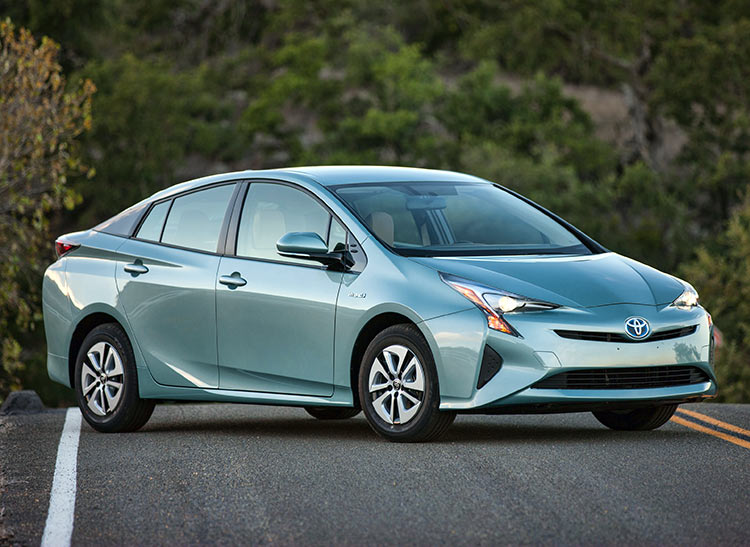 during October but down from September, which was the case with the overall new vehicle sales market. Sales were up for each category (hybrid, plug-in hybrid, and battery electric) year-to-date. Hybrids came in at 2.18% of U.S. new light duty vehicle sales in October, and plug-in electrified vehicles made up 0.996%. The Toyota Prius Liftback continues to fall out of place as the top selling hybrid in the U.S., coming in third place last month behind the Ford Fusion Hybrid and Toyota RAV4 Hybrid. It’s still the leading hybrid model for this year at 55,443 units sold versus 49,764 of the Ford Fusion Hybrid. The Prius Liftback is way down from last year, with 83,793 sold at this point in time during 2016. The Fusion Hybrid has almost doubled in volume form 26,699 sold through October 2016. The Chevy Bolt was the leader, by far, in plug-in electrified vehicle sales last month, with 20.7% of plug-in vehicle share. The Chevy brand took the first and third spots in total U.S. plug-in sales for the month. The Tesla Model S and Model X were way down in sales from September (75.6% and 73.5%, respectively), as the company struggles to prepare its car and battery factories for producing large volumes of the Tesla Model 3. For this calendar year, the Model S is No. 1 in U.S. plug-in sales, while the Model X is in the fifth position.
during October but down from September, which was the case with the overall new vehicle sales market. Sales were up for each category (hybrid, plug-in hybrid, and battery electric) year-to-date. Hybrids came in at 2.18% of U.S. new light duty vehicle sales in October, and plug-in electrified vehicles made up 0.996%. The Toyota Prius Liftback continues to fall out of place as the top selling hybrid in the U.S., coming in third place last month behind the Ford Fusion Hybrid and Toyota RAV4 Hybrid. It’s still the leading hybrid model for this year at 55,443 units sold versus 49,764 of the Ford Fusion Hybrid. The Prius Liftback is way down from last year, with 83,793 sold at this point in time during 2016. The Fusion Hybrid has almost doubled in volume form 26,699 sold through October 2016. The Chevy Bolt was the leader, by far, in plug-in electrified vehicle sales last month, with 20.7% of plug-in vehicle share. The Chevy brand took the first and third spots in total U.S. plug-in sales for the month. The Tesla Model S and Model X were way down in sales from September (75.6% and 73.5%, respectively), as the company struggles to prepare its car and battery factories for producing large volumes of the Tesla Model 3. For this calendar year, the Model S is No. 1 in U.S. plug-in sales, while the Model X is in the fifth position. in the past year, the company expects that demand for gasoline will likely reach its peak by the 2030s with owners switching over to electric vehicles ad traditional engines becoming even more efficient. Refined oil products and petrochemicals present a viable market growth opportunity, the company says. Examples include viable substitutes for asphalt as developing nations build more roads; or for polymers and chemicals used in production of cars, toys, and clothes. Shell will be doubling the size of its chemical operations by the mid-2020s with several new plants coming to Louisiana and Pennsylvania that benefit from access to cheap shale gas. The oil company wants about 20% of its revenue from its worldwide fuel stations to come from electric vehicle charging stations and from low-carbon fuels by 2025.
in the past year, the company expects that demand for gasoline will likely reach its peak by the 2030s with owners switching over to electric vehicles ad traditional engines becoming even more efficient. Refined oil products and petrochemicals present a viable market growth opportunity, the company says. Examples include viable substitutes for asphalt as developing nations build more roads; or for polymers and chemicals used in production of cars, toys, and clothes. Shell will be doubling the size of its chemical operations by the mid-2020s with several new plants coming to Louisiana and Pennsylvania that benefit from access to cheap shale gas. The oil company wants about 20% of its revenue from its worldwide fuel stations to come from electric vehicle charging stations and from low-carbon fuels by 2025.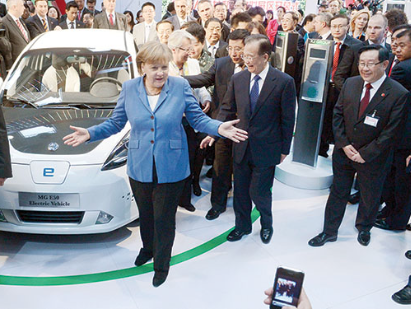 during media interviews this week; and that will likely apply to gasoline-powered vehicles as well. Merkel wouldn’t name the exact year, but said that the UK And France’s plans to ban the sale of new vehicles with internal combustion engines starting in 2040 “were the right approach.” The pressure is on Merkel and auto industry executives as the Sept. 24 election approaches. Merkel is seeking her fourth term in the office, and has been called upon to make sure auto executives respond ethically to the vehicle emissions scandal.
during media interviews this week; and that will likely apply to gasoline-powered vehicles as well. Merkel wouldn’t name the exact year, but said that the UK And France’s plans to ban the sale of new vehicles with internal combustion engines starting in 2040 “were the right approach.” The pressure is on Merkel and auto industry executives as the Sept. 24 election approaches. Merkel is seeking her fourth term in the office, and has been called upon to make sure auto executives respond ethically to the vehicle emissions scandal. 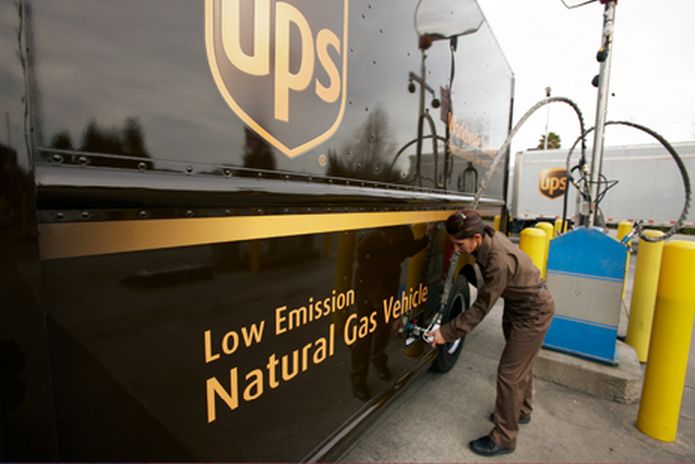 alternative fuel since about 2008, the results haven’t gone in that direction. The article cites cheap gasoline prices and growth in EV sales, including orders being placed on the Tesla Model 3, as evidence for its argument. While the natural gas-powered Honda Civic was taken off the market a few years ago, NGVs continue to play an important role for fleets converting over to clean fuel options. Transit and city fleets are bringing them in with a few major corporate fleets like UPS, Ryder System, and AT&T, continuing to acquire them and install more CNG fueling stations. Ford and GM continue to add the CNG option to their pickup trucks and van offerings. Renewable natural gas is also supporting the clean fuel and its infrastructure, as more fleets start using RNG. Liquefied natural gas is also playing a role in adoption of the fuel in various transport sectors.
alternative fuel since about 2008, the results haven’t gone in that direction. The article cites cheap gasoline prices and growth in EV sales, including orders being placed on the Tesla Model 3, as evidence for its argument. While the natural gas-powered Honda Civic was taken off the market a few years ago, NGVs continue to play an important role for fleets converting over to clean fuel options. Transit and city fleets are bringing them in with a few major corporate fleets like UPS, Ryder System, and AT&T, continuing to acquire them and install more CNG fueling stations. Ford and GM continue to add the CNG option to their pickup trucks and van offerings. Renewable natural gas is also supporting the clean fuel and its infrastructure, as more fleets start using RNG. Liquefied natural gas is also playing a role in adoption of the fuel in various transport sectors.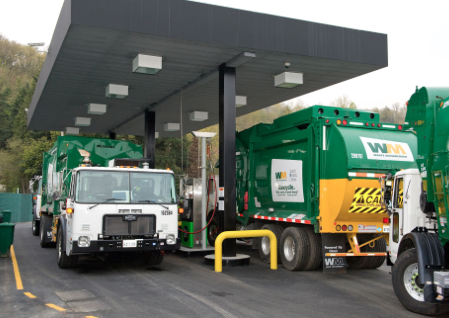 are open to the public, to fuel its 6,000 unit fleet of natural gas trucks. It’s the largest natural gas-powered fleet of its kind in North America. The company is moving toward its goal of reducing carbon dioxide 15% from its fleet by 2020. Much of the fuel being used is renewable natural gas, which comes from waste matter stored in landfills. “We invest in building our own fueling infrastructure to refuel our vehicles, while making CNG available to other commercial fleets and individuals,” said Marty Tufte, Waste Management corporate fleet director.
are open to the public, to fuel its 6,000 unit fleet of natural gas trucks. It’s the largest natural gas-powered fleet of its kind in North America. The company is moving toward its goal of reducing carbon dioxide 15% from its fleet by 2020. Much of the fuel being used is renewable natural gas, which comes from waste matter stored in landfills. “We invest in building our own fueling infrastructure to refuel our vehicles, while making CNG available to other commercial fleets and individuals,” said Marty Tufte, Waste Management corporate fleet director. on the matter. It was part of a four-day road trip to raise $1.5 billion to pay for production of the Model 3 through junk-rated bonds. The company is spending a lot of cash on building out the Fremont, Calif., assembly plant, and battery packs at its Gigafactory in Nevada. The company burned through a record $1.16 billion in cash during the second quarter. It looks good for Tesla hitting the $1.5 billion this week.
on the matter. It was part of a four-day road trip to raise $1.5 billion to pay for production of the Model 3 through junk-rated bonds. The company is spending a lot of cash on building out the Fremont, Calif., assembly plant, and battery packs at its Gigafactory in Nevada. The company burned through a record $1.16 billion in cash during the second quarter. It looks good for Tesla hitting the $1.5 billion this week.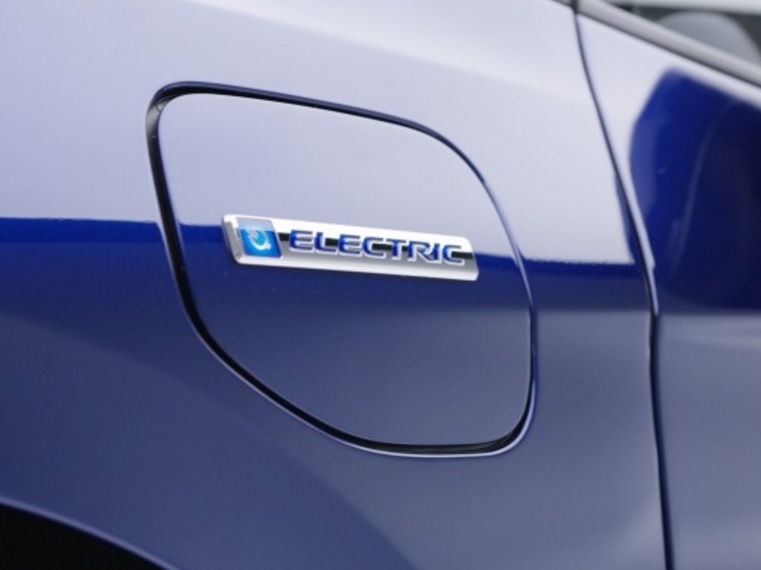 company will release a China-specific electric vehicle in 2018. Another EV made for global markets will be launched this fall at an auto show,
company will release a China-specific electric vehicle in 2018. Another EV made for global markets will be launched this fall at an auto show, 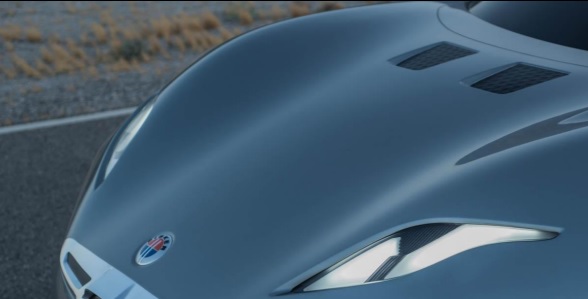 EMotion all-electric sports car. One of the tricks to getting up to the 400-miles per range will be lightening up the car, and it will be safer through patented crash design. The company now has a patent on the Emotion’s frontal crash structure that it says exceeds current minimum standards for occupant protection. The starting price has been set at $129,900 and it will be launched soon, with more details coming out this month.
EMotion all-electric sports car. One of the tricks to getting up to the 400-miles per range will be lightening up the car, and it will be safer through patented crash design. The company now has a patent on the Emotion’s frontal crash structure that it says exceeds current minimum standards for occupant protection. The starting price has been set at $129,900 and it will be launched soon, with more details coming out this month.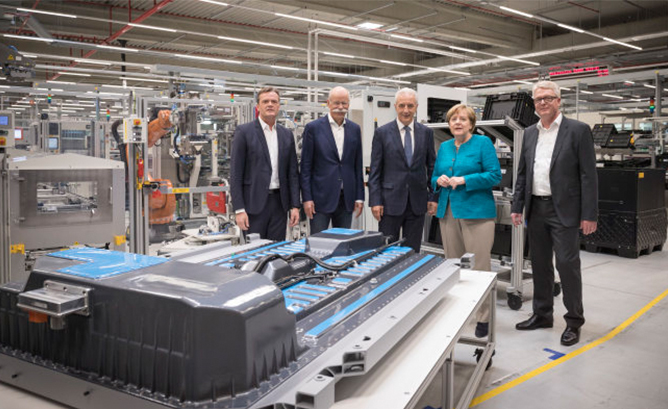 Daimler quadrupling lithium-ion capacity: Daimler officially broke ground yesterday on a lithium-ion battery plant it says will be one of the largest in the world.
Daimler quadrupling lithium-ion capacity: Daimler officially broke ground yesterday on a lithium-ion battery plant it says will be one of the largest in the world. 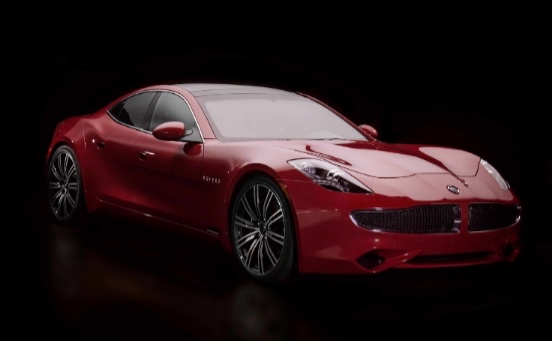 Here comes the Revero: Karma Automotive’s Revero are
Here comes the Revero: Karma Automotive’s Revero are 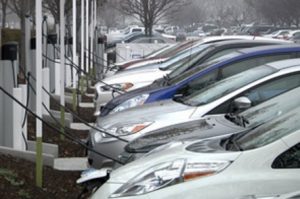 PG&E charging network: A years-long struggle over
PG&E charging network: A years-long struggle over 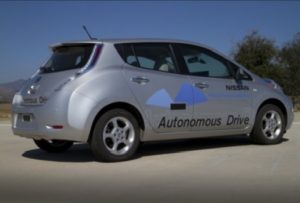 Feds issue self-driving car guidelines:
Feds issue self-driving car guidelines: 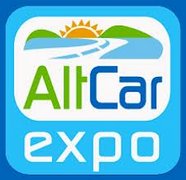 AltCar Expo coming up: The City of Santa Monica will present the
AltCar Expo coming up: The City of Santa Monica will present the